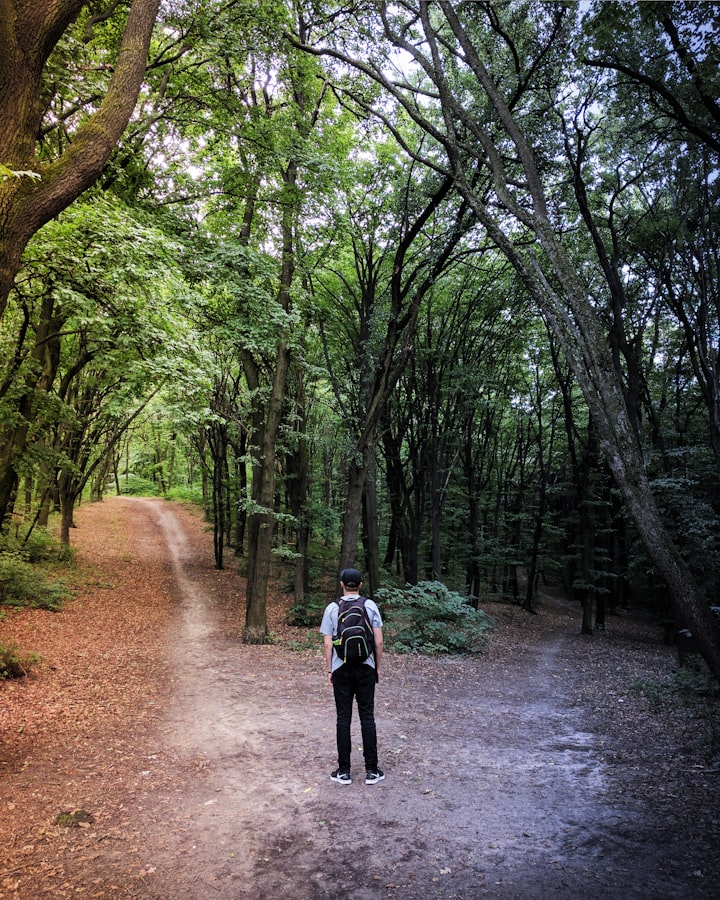How to make smart decisions more easily
Smart Moves Simplified: A Guide to Effortless Decision-Making

In a recent report, scientists followed a gathering of judges choosing whether or not to offer detained people an opportunity at parole. Coherently, one could expect things like a detained individual's wrongdoing, existing sentence, and current way of behaving to be the essential contemplations.
In any case, while those subtleties were properly analyzed, one variable had a surprisingly huge effect: the hour of day. Detained individuals who met with the board in the first part of the day were undeniably bound to get parole than those whose cases were checked on in the early evening, regardless of whether their violations and sentences were basically indistinguishable. This finding could appear to be unusual, however the analysts' clarification was basic: in the early evening, the adjudicators were reasonable depleted. In particular, they were encountering choice weakness.
This sort of mental fatigue happens after a time of broadened independent direction and it can make individuals more indiscreet and less sure while simply deciding. The risks of choice weariness are clear in high-stakes situations like this review, however it can genuinely affect our everyday lives too. So what sorts of decisions lead us to this state, and how might we battle exhaustion? All that our bodies do — whether physical or mental — utilizes energy. In any case, while it's hazy precisely the thing assets are exhausted during mental strain, studies have found numerous people appear to have a day to day edge for deciding.
Also, when that edge is met, the vast majority go with the cognizant decision to "relax" and save serious contemplating any new choices for one more day. How rapidly you arrive at this edge relies upon a few factors, including the recurrence, intricacy, and oddity of the choices you need to make. For instance, picking what to have for breakfast isn't extremely burdening. Besides the fact that this choice restricted by is what's accessible, it's likewise a decision you hope to make once every day with genuinely low stakes.
Also, in any event, when you're not exactly certain what to eat, the time between this minor choice and the following one ought to give you adequate space to recuperate anything mental energy you consume. However, we should envision something a lot trickier. For instance, your vehicle abruptly stalls and you really want to supplant it immediately. This is an unforeseen, muddled choice with serious results. For this situation, there are endless choices to browse, and you won't track down them across the board place. To go with the ideal decision, you'll have to do long stretches of insightful exploration to think about the different advantages and disadvantages.
Furthermore, since this is a choice you don't frequently make, you'll likewise need to recognize what contemplations are generally significant. The time tension can add extra pressure both during the dynamic interaction and a while later, as you exhaust more energy contemplating whether you would have settled on an alternate choice with additional time. After a solitary choice of this extent, the vast majority would have proactively arrived at their dynamic limit. Yet, in callings where people need to settle on different high-stakes choices consistently, choice weakness can be significantly more perilous. Judges, similar to those in the 2011 review, frequently experience hard choices one after the other, with no opportunity to recuperate. Numerous analysts are particularly worried about choice weakness in medication. Specialists frequently work long moves brimming with crucial choices, and a few investigations have discovered that clinical laborers are considerably more prone to commit basic errors while working expanded shifts.
Resolving these issues requires institutional changes, yet there are significantly more immediate ways the vast majority of us can stay away from weariness in our regular routines. One straightforward procedure is to pursue less everyday choices, handling your daily agenda over several days, or in any event, eliminating some repetition choices from your day through and through. It's likewise regularly less depleting to offer counsel on a hard choice than it is to go with that decision yourself. So it tends to be useful to envision your choices as another person's prior to thinking about what the outcomes mean for you explicitly. At last, it's memorable's fundamental that few out of every odd decision is similarly significant, and figuring out how to loosen up about the little stuff can assist you with saving energy for the choices that genuinely matter. In a recent report, scientists followed a gathering of judges choosing whether or not to offer detained people an opportunity at parole. Consistently, one could expect things like a detained individual's wrongdoing, existing sentence, and current way of behaving to be the essential contemplations. Yet, while those subtleties were properly inspected, one variable had a surprisingly enormous effect: the hour of day. Detained individuals who met with the board in the first part of the day were definitely bound to get parole than those whose cases were explored in the early evening, regardless of whether their wrongdoings and sentences were essentially indistinguishable.
This finding could appear to be unusual, yet the scientists' clarification was basic: in the early evening, the adjudicators were probable depleted. In particular, they were encountering choice weakness. This sort of mental fatigue happens after a time of expanded navigation and it can make individuals more imprudent and less sure while simply deciding. The risks of choice weakness are clear in high-stakes situations like this review, however it can genuinely affect our everyday lives also. So what sorts of decisions lead us to this state, and how might we battle exhaustion? All that our bodies do — whether physical or mental — utilizes energy. However, while it's hazy precisely the thing assets are exhausted during mental strain, studies have found numerous people appear to have an everyday edge for simply deciding. Furthermore, when that limit is met, a great many people pursue the cognizant decision to "relax" and save serious contemplating any new choices for one more day. How rapidly you arrive at this limit relies upon a few factors, including the recurrence, intricacy, and curiosity of the choices you need to make. For instance, picking what to have for breakfast isn't extremely burdening. Besides the fact that this choice restricted by is what's accessible, it's likewise a decision you hope to make once every day with genuinely low stakes.
Also, in any event, when you're not exactly certain what to eat, the time between this minor choice and the following one ought to give you adequate space to recuperate anything that mental energy you use. In any case, how about we envision something a lot trickier. For instance, your vehicle unexpectedly stalls and you really want to supplant it immediately. This is an unforeseen, convoluted choice with serious results. For this situation, there are endless choices to look over, and you won't track down them across the board place.
To settle on the ideal decision, you'll have to do long periods of insightful exploration to think about the different advantages and disadvantages. Furthermore, since this is a choice you don't frequently make, you'll likewise need to distinguish what contemplations are generally significant. The time tension can add extra pressure both during the dynamic interaction and a while later, as you use more energy contemplating whether you would have pursued an alternate choice with additional time. After a solitary choice of this greatness, the vast majority would have proactively arrived at their dynamic edge. Be that as it may, in callings where people need to settle on different high-stakes choices consistently, choice exhaustion can be substantially more risky. Judges, similar to those in the 2011 review, frequently experience hard choices one after the other, with no opportunity to recuperate. Numerous specialists are particularly worried about choice weariness in medication. Specialists frequently work long moves brimming with desperate choices, and a few investigations have discovered that clinical laborers are substantially more liable to commit basic errors while working expanded shifts. Resolving these issues requires institutional changes, yet there are substantially more immediate ways the majority of us can keep away from weariness in our day to day routines. One straightforward procedure is to go with less day to day choices, handling your plan for the day over numerous days, or in any event, eliminating some repetition choices from your day out and out. It's likewise commonly less depleting to offer counsel on a hard choice than it is to settle on that decision yourself. So it tends to be useful to envision your choices as another person's prior to thinking about what the results mean for you explicitly. At long last, it's memorable's fundamental that few out of every odd decision is similarly significant, and figuring out how to loosen up about the little stuff can assist you with saving energy for the choices that genuinely matter.





Comments
There are no comments for this story
Be the first to respond and start the conversation.